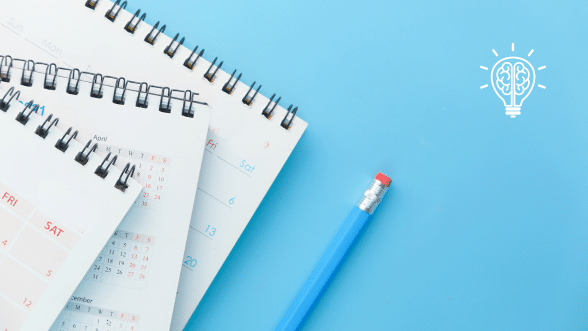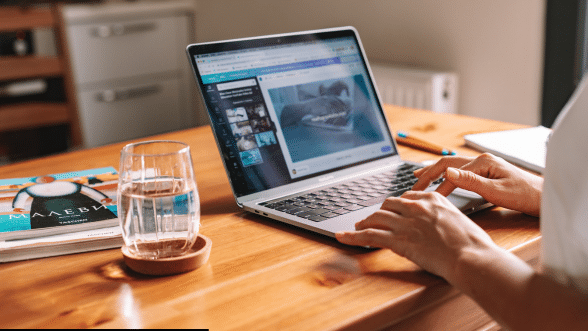For many young adults, applying to jobs for the first time is like navigating unfamiliar waters. It can feel like everything is new and unexpected. When you land that first job interview, it might feel like things only get more confusing. While every young adult faces challenges as they enter the working world, the confusion is often compounded for neurodivergent job seekers, especially those with ADHD, autism, or executive function disorder. But there’s good news: Interview skills can be learned and practiced, so you feel more comfortable with the process.
Use these first job interview tips—designed specifically with neurodivergent individuals in mind—to gain confidence and increase your odds of success at your upcoming interview.
Tips for a Successful First Interview
1. Know Your Rights
First and foremost, it’s important to understand your rights in the workplace. You can find a full breakdown of these rights on the U.S. Equal Employment Opportunity Commission’s website. As someone covered by the Americans with Disabilities Act (ADA), you are entitled to reasonable accommodations for both the job interview process and the job itself, if you’re hired.
These accommodations include changes like extra time to complete tasks or receiving an interpreter. When requesting accommodations for an interview, you have to make the request well enough in advance so the interviewers can meet your needs. There may be a question related to this on the application, or you can make the request when someone calls to schedule an interview.
However, if you are not requesting accommodations, you are not required to disclose your disability status. A potential employer shouldn’t ask about it during an interview, and if they do, you’re not required to respond. If you do disclose your disability status, it should be done voluntarily, and the amount of information you disclose is entirely up to you.
Whether or not you disclose this information is your choice, and different individuals will have differing needs surrounding disclosure. You may feel more comfortable disclosing your disability early in the process, you may not feel the need to disclose until after you’re hired, or you may not want to disclose at all. At the end of the day, it’s important to do what feels best for you.
2. Prepare Your Answers to Common Questions
The preparation phase is the most important stage of this process, especially for neurodivergent candidates. Proper planning allows you to show up to the interview with a strategy and leads to better outcomes for interviewees. Use the time after you schedule an interview to learn about the company you’re interviewing with, make a list of questions you might want to ask your interviewers, research common interview questions and rehearse your answers, and choose your interview outfit.
The following questions are common in interviews across industries:
- What do you know about our company, mission, and goals?
- What are some of your strengths and weaknesses?
- Can you tell us a little about yourself?
- Why are you interested in this position?
- Can you explain this gap in your resume?
- What are your goals for the next five years?
- How do you handle conflict and difficulties in the workplace?
Take time in the days leading up to your interview to familiarize yourself with these questions, reflect on them, and write down answers. Once you have an idea of how you will answer these questions and others like them, it may be helpful to rehearse your responses with a friend, family member, or coach. You don’t want to sound like you’re reading from a script, but you do want to project confidence and self-awareness—and practicing will help.
3. Familiarize Yourself With the Etiquette
Knowing how to make a good impression at a job interview starts with knowing the etiquette. If possible, ask about the dress code ahead of time. If you can’t get an answer, default to business casual attire. Nice shoes, dress pants, and a button-up shirt are always a good start. You could also wear a clean polo shirt or solid-colored sweater if buttons on a shirt feel uncomfortable or distracting.
Most interviews start with introductions, so you’ll have a chance to get to know the other person first. If there are multiple people from the company participating, they’ll each get a turn to introduce themselves. If you’re meeting in person, remember to shake the interviewers’ hands and make eye contact if possible.
It’s good to have your phone silenced and put away, too—even if you’re interviewing virtually. This eliminates distractions so you can practice active listening and remain engaged throughout the process. During the interview, it’s always okay to ask the interviewer to repeat their question if you don’t process it the first time or forget it.
Generally, there will be time for you to ask questions near the end of the interview, but if you need to ask a question earlier, that’s okay. Just make sure you don’t interrupt anyone else, and ask, “Is it okay if I ask a question right now?” If it’s not, ask for a moment to write down your question for later.
4. Stay on Topic
While answering interview questions, it’s easy to wander off onto another topic, get distracted, or even lose track of the point you were trying to make. The best way to stay on topic is to try to keep your answers brief, direct, and focused. If the interviewer wants more detail, they’ll say so.
Avoid rambling if you can and offer a clear conclusion to each answer. If you need to consider an interviewer’s question, it’s okay to tell them that you need a second to think of an example before you begin answering. Write down a few notes to help you plan your response and ensure you cover everything you want to highlight.
It’s normal to feel nervous—and excited—before a job interview. With some practice and support, you’ll be ready for this new chapter in your life.





